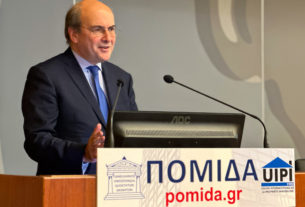2016 was turbulent year for the Tax Free Shopping (TFS) industry, with macro headwinds – from terror attacks, to currency exchange fluctuations – dictating where international travellers chose to spend their money.
Against this backdrop, Global Blue’s Intelligence team looks back at some of the trends affecting global Tax Free Shopping over the last 12 months.
2016 starts slowly as Chinese demand softens in Europe
The start of 2016 saw TFS sales growth slow around the globe, driven largely by softer Chinese spending, a trend that would continue throughout the year. In January, sales in store from Chinese globe shoppers decreased by -11% year on year (YoY) in Europe, a sharp contrast with Asia-Pacific, where they rose +60%.
January also marked the first time Chinese spend had declined since May 2014, with sales impacted by a number of factors including concerns over European terror attacks, domestic economic uncertainty and the rise of a less affluent group of Chinese international travellers.
TFS sales enter negative growth during March
Following this slowdown, March saw global TFS spend fall sharply, with overall sales plummeting to -18% year-on-year (YoY), representing a four year low. This drop in performance was particularly pronounced in Europe, where geopolitical factors such as the new Schengen biometric visa policies and the threat of terrorist attacks deterred Chinese globe shoppers.
Overall TFS spending in Europe was down -15% YoY during March, with France, Germany, Italy and the UK all posting negative growth. While Asia broadly fared better than Europe throughout Q1, March also marked the first decline in TFS sales for the region, with Asia posting a -4% drop in sales (YoY).
Middle East shoppers boost TFS sales
With macro-economic headwinds in Europe remaining strong throughout Q2, Middle East shoppers brought a much need boost to European TFS sales. This was particularly true during April 2016, where the UK posted a resilient single-digit negative TFS sales performance. Middle East nationalities continued to reduce the impact of slowing Chinese demand and helped overall sales throughout Q2, posting European sales in store growth +4% YoY.
Japan emerges as favoured TFS hotspot
Bucking the trend seen across most markets, Japan reinforced its position as an increasingly popular TFS destination during H1, driven by the continued influx of Chinese inbound visitors and a robust government-supported marketing campaign.
Japan’s popularity, particularly among Chinese inbound visitors, grew last year, largely in part to favourable currency FX, new airline routes and more relaxed visa regulations. Global Blue’s Q2 data showed Chinese globe shopper transactions up +13% (YoY ) in Japan, an indication of higher visitor numbers and alongside a similar rise in the number of tax-free forms issued.
Brexit triggers UK TFS boost
In the aftermath of the UK’s vote to exit the European Union, luxury shoppers from China and the US headed to London for bargain-hunting shopping trips. In the week after the referendum, the British pound vs the Chinese yuan fell -9.57%, according to Global Blue Treasury, with a similar drop against the US dollar of -10.57%, resulting in a strong second half of the year for British retailers.
The UK saw strong growth from July onwards, with Q3 sales in store up by +35% as the softening of the pound continued post-Brexit. This growth was driven by increased average spend (+19%) as globe shoppers recognised London’s new status as Europe’s most affordable luxury shopping destination.
Spain continued to weather the storm
While much of northern Europe continued to feel the force of macro headwinds in H2 2016, Spain showed strong growth, posting a record month in terms of absolute TFS sales during August (+16% YoY). Spain was well placed to avoid the headwinds affecting northern Europe tourist hotspots during 2016. This was in part due to its diverse visitor mix, with globe shoppers from Argentina, Morocco, Mexico and the US all key nationalities for the Spanish TFS market.
Global Blue Spain also launched a digital tax-refund validation service (DIVA) this year in collaboration with the customs authorities in Madrid, dramatically improving the refund experience for visiting globe shoppers.
Optimism returns as European TFS stabilises
The final quarter of 2016 saw Global Blue’s TFS sales performance return to stability in Europe, at 0% for October (YoY), a marked improvement on September’s -6% YoY decline. This stabilisation continued into November (0%) and December, where Global Blue posted positive growth for the first time in 2016 (+3% YoY).
This continued stabilisation of performance can be explained by an easing of the macroeconomic conditions impacting the luxury industry, including the softening of the Chinese economy and the lingering impact of European terror attacks earlier this year.
European transaction trends continued to improve across most nationalities during December 2016, with US and Russian sales increasing by +20% and +2% respectively. Improvement in the number of Tax Free Shopping transactions also continued throughout the quarter (-5% for October, -2% for November and 0% for December), while the average spend remained in positive growth for a third consecutive month.
These trends point to positive growth in 2017, and with the EUR and GBP expected to remain soft against the USD and CNY, the Tax Free Shopping and luxury industries should remain cautiously optimistic about improving trading conditions over the next 12 months.




